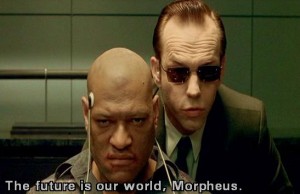 There’s an old saying – Don’t take life too seriously, no one’s getting out alive anyway.
There’s an old saying – Don’t take life too seriously, no one’s getting out alive anyway.
While on vacation I was introduced to a fun little game called Forbidden Island. It’s basically a faster, simplified version of Pandemic (made by the same guy!). It is a cooperative “players vs the board” game, and the gameplay is as follows:
You are on an island that is sinking under the sea. You can shore up parts of it for a while, but it’s sinking faster than you can save it. You have to keep the resource-rich areas in play just long enough for the players to extract all the resources they need to fulfill one of the win conditions. Then everyone abandons it. That area goes crashing down and is swallowed beneath the waves. Those with the ability to extract resources then move to the next resource-rich area, which has been valiantly held together by other players in a holding action, draw out the resource, and again everyone abandons it to the elements. Repeat until the island has been stripped of everything of value, then flee as a group and leave the whole damned place to its doom.
(You lose if you fail to coordinate or take too long, and the important areas sink before you can get the valuable resources from them)
It struck me as a perfect allegory for the reigning model of corporate capitalism. Corporations do not share human values. They have a single goal that means life to them, and death if it isn’t met often – the next quarter’s profits. Every single action must advance that goal in some way. Actions that don’t do that aren’t just value-neutral, they are actually value-negative since they drain resources. This results in the sort of scorched-earth tactics that corporations are famous for, from climate-denial to child labor. It turns into a game of drawing all the value you can from a system that’s collapsing around you before abandoning it and fleeing to the next area of opportunity.
It’s an exciting game! Forbidden Island is a lot of fun. It’s also the engine behind most action novels/movies – how far can the hero push themselves in pursuit of the important goal? How much can they sacrifice? In the end he should just barely win, limping out of the wreckage with every resource exhausted. Altered Carbon, one of my favorite novels, takes this a step further – bodies can be replaced, so the hero literally burns through his life, because as long as he can make it to a place where his cortical stack will be recovered it doesn’t matter if his body is completely destroyed in the process. It makes for a fucking AWESOME action book. Seth Dickinson takes a different tack in many of his short stories, asking how much of what a hero values s/he will sacrifice in order to do The Important Thing. (spoiler: the answer is always ALL OF IT. In the most brutal way possible. OMG so good!!)
But as exciting as it is, it’s not a great way to run the world you’re living in. Eventually you’re on an island that’s crumbling into the ocean and you have nowhere left to run and oh god what do I do now? This is one of the things that makes End Times Theology so attractive – you don’t have to worry about that since God’s going to destroy the whole thing and start over anyway. And it’s the impetus for sayings like the one quoted at the top. You’re gonna die anyway, live it up while you can. This has, for a long time, been a catch-phrase of the villains. Good people care about others, they give a damn about the next generation. Interesting that we’ve created a system which spawns powerful entities like corporations which cannot act in non-villainous ways if they want to continue existing.
One of my favorite quotes is from Franz Kafka: “The meaning of life is that it ends.” I love it because it is so simple and so neutral. You can understand it with the hopelessness that pervades so much of his work, or you can understand it to mean that meaning must be created while you are here on this earth.